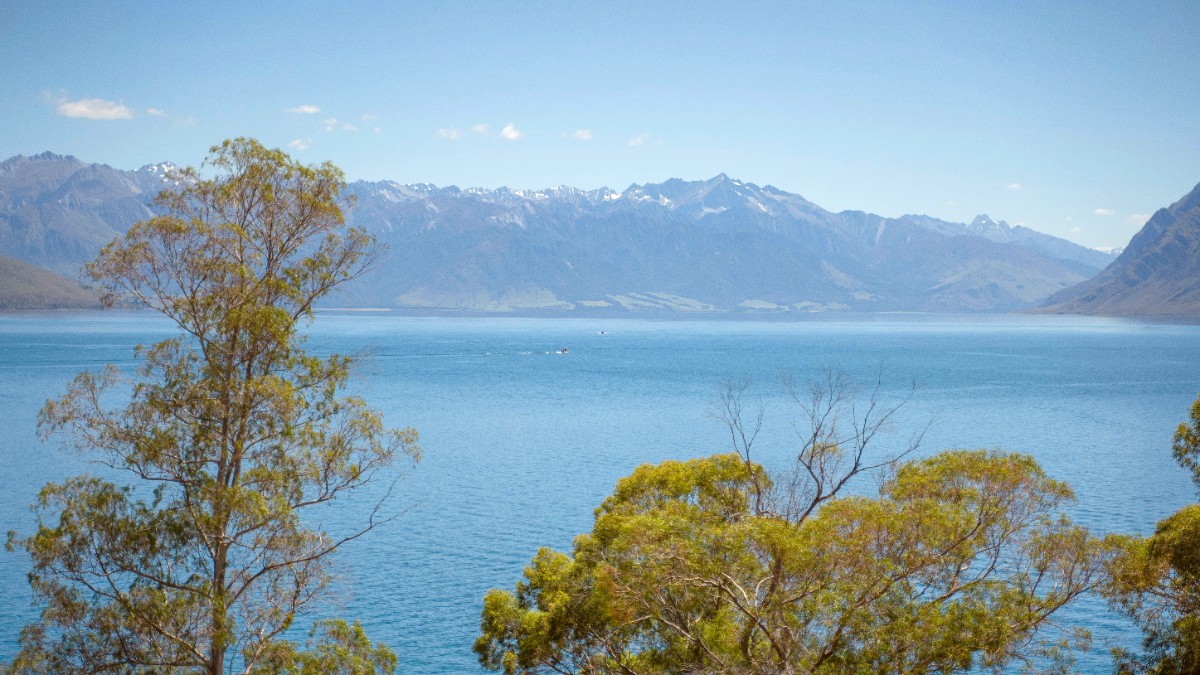
Queenstown And Wanaka, New Zealand
The region experiences four distinct seasons, each holding an unique appeal. Plan your visit based on your preferred activities and atmosphere.
New Zealand does not experience monsoons or hurricanes. Extreme temperatures are rare; summers can have hot days (above 77°F / 25°C), and winters can have very cold nights (below 23°F / -5°C).
Alpine weather changes rapidly; be ready for all conditions, even on short walks.
Strong winds are possible, specifically in exposed areas.
December-February
Warmest weather, ideal for lake activities, hiking, long daylight.
Most crowded time, higher prices for accommodations and activities.
July-August
Prime for skiing/snowboarding, beautiful snow-capped scenery.
Cold temperatures, crowded ski fields, higher prices.
March-May
Fewer crowds, suitable for hiking and cycling, stable weather.
Evenings are cooler, some seasonal businesses might close.
Fewer crowds and blooming flora offer good deals on accommodation before summer begins. Snowmelt creates impressive waterfalls.
Be ready for variable weather, as it can be wet and windy. Some higher-altitude tracks may still have snow cover.
Optimal in Summer (Dec-Feb) and Autumn (Mar-May).
Best in Summer (Dec-Feb) on Lake Wanaka.
Winter (Jun-Aug) brings the best snow and resort operations.
Year-round, with pleasant weather for vineyard visits in Autumn.
Shoulder seasons (Autumn/Spring) are closest to off-peak travel.
New Zealand entry requirements vary by nationality. Ensure you hold the proper authorization.
Citizens of approximately 60 visa-waiver countries (including USA, UK, Canada, Australia, EU) need a NZeTA.
Ensure your documentation is complete for smooth entry.
Prices vary based on your travel style and activities.
Optimize your Wanaka experience with smart spending strategies.
Self-catering: Use accommodations with kitchen facilities and buy groceries from local supermarkets like New World or Pak'nSave. This greatly lowers meal costs.
Free Activities: Take advantage of the numerous free hiking trails (e.g., Diamond Lake & Rocky Mountain, local lakefront walks) and scenic viewpoints like #ThatWanakaTree.
Focuses on low-cost options for accommodation, meals, and activities to stretch the budget further.
Accommodation: NZD 40-80 (hostel dorm, camp)
Total Daily Cost: NZD 70-190
Balances comfort and affordability, with a mix of casual dining and some paid activities.
Accommodation: NZD 100-250 (motel, B&B)
Total Daily Cost: NZD 210-500
Prioritizes premium accommodations, fine dining, and exclusive tours for a high-end experience.
Accommodation: NZD 300+ (boutique hotel, lodge)
Total Daily Cost: NZD 550+
| Category | Range (NZD) | Examples |
|---|---|---|
| Hostel Dorm Bed | 35-60 | Per night |
| Basic Motel Room | 80-150 | Per night |
| Daily Car Rental | 50-150 | Excluding fuel and insurance |
New Zealand maintains high standards for safety and healthcare.
No specific vaccinations for entry. Routine vaccinations (MMR, DTaP, Polio, Hepatitis A & B, Tetanus, flu shot) are generally recommended. Consult your doctor.
High UV levels. Use high-SPF Sunscreen. Wear a Wide-brimmed hat and seek shade, especially 10 AM-4 PM.
Prevalent near water. Use effective Insect repellent (DEET or Picaridin-based) and wear long clothing.
New Zealand provides a high standard of public and private healthcare. Visitors typically pay for services.
Dial 111 for Police, Fire, or Ambulance services. This is a free call from any phone. Wanaka Lakes Health Centre, 23 Cardrona Valley Rd, Wanaka. Phone: +64 3 443 0710.
Tap water is safe to drink throughout Wanaka. New Zealand has very high food safety standards. Eating from reputable restaurants and cafes is safe. Food poisoning is rare.
Find first aid supplies at Adventure Medical Kits and water filtration at LifeStraw.
Wanaka is a very safe town with low crime rates.
Petty theft can occur; take standard precautions like securing valuables and locking vehicles/accommodations. For anti-theft bags, consider Pacsafe.
No specific neighborhoods are known for high crime rates.
Be aware of potential natural hazards and safety procedures.
Comprehensive travel insurance is highly recommended. Verify coverage for all planned activities. Consider AirHelp for flight compensation assistance.
Police, Fire, Ambulance: Dial 111 (free call).
Wanaka Lakes Health Centre: +64 3 443 0710.
Your country's embassy or consulate is located in Wellington, Auckland, or Christchurch.